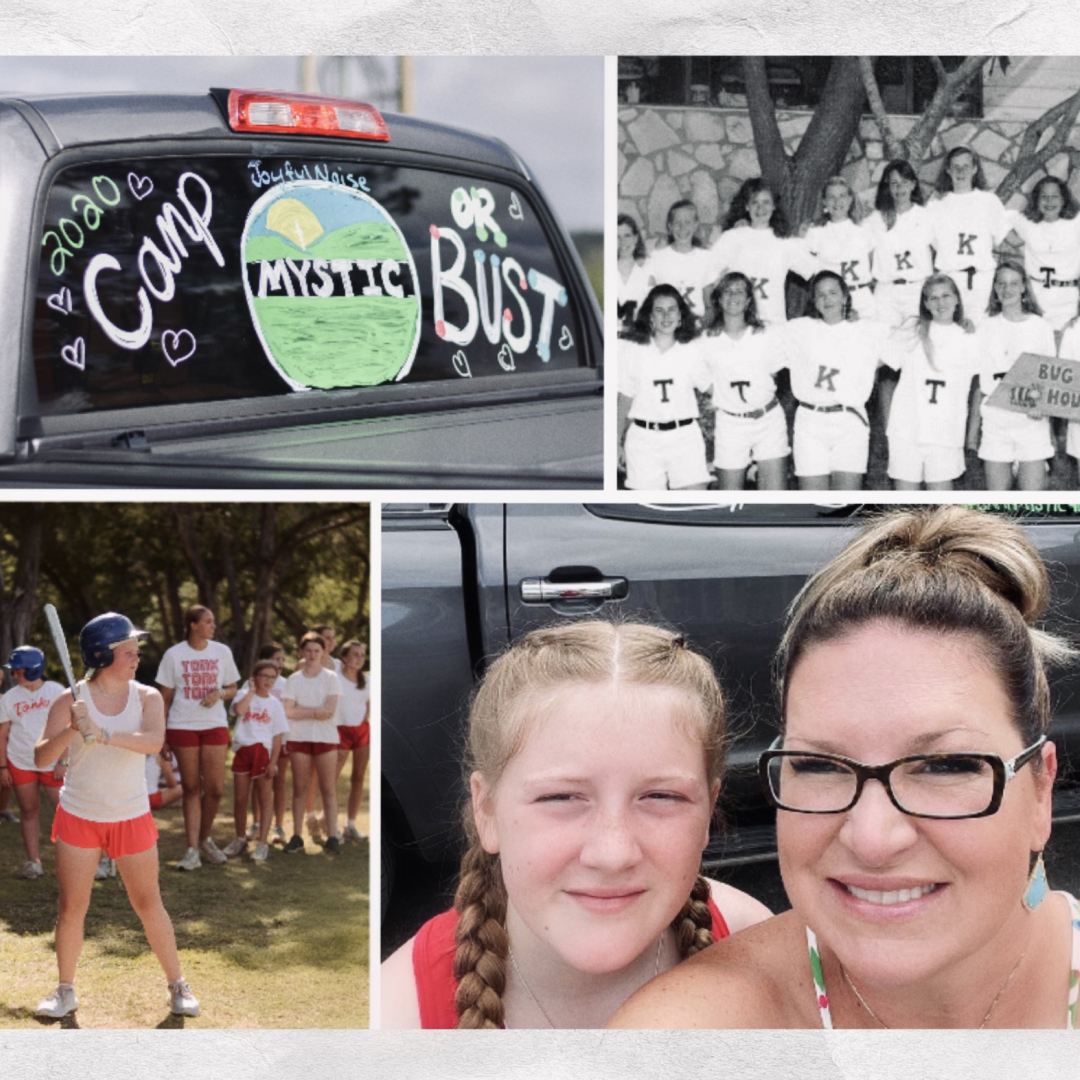
London Sundbeck’s name was on the Camp Mystic waitlist before she was even born. Her mother, Lora Birney, had cherished the all-girls camp tucked along the Guadalupe River in Texas since her own summers there in the early ’90s. To her, it wasn’t just a camp—it was a rite of passage, a memory-maker, a legacy to pass on to her only daughter.
“I always go back to the first time London went to camp,” Lora says. “When she came home, she pulled me aside and said, ‘Mom, why didn't you ever tell me how amazing camp is?’ I said, you can't explain it. People don't get it. And until you go, you just don't get it.”
For generations of Texas women, Camp Mystic has been more than a retreat—it’s a rite of passage, passed down like a family heirloom. Sixteen-year-old London was in the middle of her sixth summer when that legacy was shattered. Over the fourth of July weekend, a deadly storm system tore through Kerr County, causing the Guadalupe River to surge 26 feet in under an hour. Flash floods swept the region, and Camp Mystic lay directly in the path.
Lora was at home with her husband on July 3 when she first heard reports of rising water late that night. At first, she wasn’t overly concerned—flash flood warnings were common in Texas. But the next morning, as she scrolled the news over coffee, dread crept in. She tried contacting the camp, but couldn’t get through. Panicked, she called her mother and “just started crying,” she recalls. “I said, ‘It’s not okay. It’s not going to be okay. This is different.’” Lora’s mother, who lives closer to the camp in Johnson City, immediately got in the car and drove as close to the campgrounds as she could. Lora, who was nearly five hours away in Klein, stayed home—watching, waiting, and rattled.
You can't explain it. People don't get it. And until you go, you just don't get it.
Lora Birney
“We could see the muddy waters rising…and we were getting nervous,” London later told her mother. Things shifted quickly: the camp lost power, there was no running water, and the girls had to go outside to use the bathroom. Camp routines, usually strict and predictable, began to unravel. Instead of gathering in the dining hall, meals were delivered in unusually small portions—quietly, without explanation. Phones weren’t allowed at camp, so the girls had no way of knowing how dangerous the storm had become. That night, no one slept. By morning, staff entered the cabins with a sudden message from the National Guard: “Leave your things. Let’s go. We’re leaving.”
Shortly after the phone call with her mother, Lora got an email from the camp: everyone at Cypress Lake (the section of camp where London was staying) had been accounted for, but there was no power, no water, and no further information. It wasn’t until 8:34 p.m. that her phone lit up with a message from a number she didn’t recognize: “Mom, mom, I’m okay. This is not my phone. Where are you?” It was London, calling from a Camp Mystic staffer’s phone while en route to the reunification center—a local elementary school. Her grandmother was already there waiting. They managed a brief, tearful phone call, repeating the only words that mattered: “I love you.”
A few hours later, Lora and her husband drove to her mother’s to reunite with them. From there, the four of them—Lora, her husband, London, and London’s cabin mate—continued on to Camp Mystic to retrieve London’s car and belongings. Nothing could have prepared them for what they saw. “I cried the entire way,” Lora says.
Mattresses from nearby camps were tangled high in the trees. She spotted red and blue shorts from her daughter’s camp division, towels, floaties, and Mystic t-shirts wrapped around branches. “And the girls stayed completely silent in the backseat,” she says.
It was a personal moment of grief within a much larger tragedy. In the days that followed, officials confirmed that at least 120 people had died across Texas—including 27 from Camp Mystic—with more than 170 still unaccounted for.
You want them to go there because you want them to become strong and independent
Lora Birney
For Lora, the flood shattered something sacred. Mystic had been her safe place growing up—a refuge during her parents’ divorce. “We were kind of guarded between two different homes,” she says. “My grandparents saw a need for something stable and made sure we could go.” She’d wanted to pass that same stability on to London: “You want them to go there because you want them to become strong and independent and be kind and compassionate and help others whenever there’s a situation.”
London had embraced it fully. On her first night at camp, she pulled the red slip of paper that sorted her into the same camp division her mother had belonged to decades earlier. “I was so excited she got to share that with me,” Lora says. “She was also one of the two youngest campers one summer to get awarded the M,” Lora says, explaining that it was a recognition of Mystic values: caring for others, becoming a young woman, and acting selflessly.
Another part of what made Mystic feel like home—for both mother and daughter—was the presence of Dick and Tweedy Eastland, the camp’s longtime directors. “They’ve always been this traditional couple that we all wish we had as parents,” Lora says. “If your parents aren’t married, that’s okay. They are. And they’re happy. It does exist. They’re kind of the unicorn parents.” She’d looked up to them as a teenager; London did too. When news came that Dick had died in the flooding, it hit them both like a family loss.
Now back home, London is processing the trauma in her own quiet way—writing letters to younger campers, organizing a virtual scavenger hunt to lift others’ spirits. Lora is keeping them busy with volunteer work and relief efforts. “She’s a quiet person,” she says. “She kind of buries it deep and finds herself with music. I cope differently than her.”
Still, the bond between them has only deepened. They’ve now shared something few others can understand: both the magic of Camp Mystic and the heartbreak of watching it nearly wash away. “It’s a place to go to heal their heart,” Lora says.
Now, she and London are trying to do the same.







